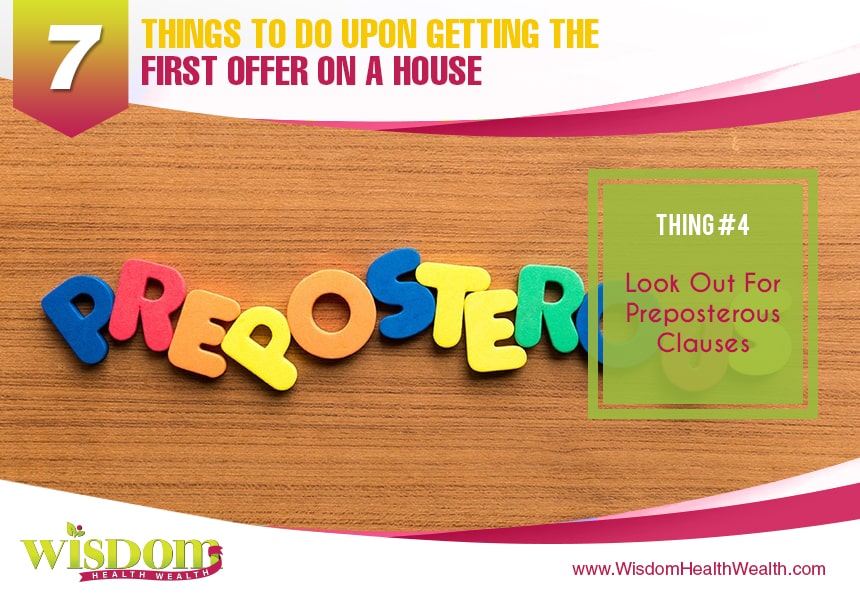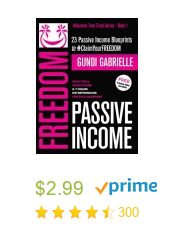
7 Things To Do Upon Getting The First Offer On A House

How To Deal With An Offer On Your House
Selling a home can be quite a complex process from beginning to end. More likely than not, you will receive an offer that is lower than your asking price, which generally happens to most homeowners who do decide to put their properties up for sale. Once you do receive that first offer, should you accept it right away?
Maybe you should; maybe you shouldn't. Before agreeing to anything, study the contingency clauses and check if the offer is fair for you, as well. There are a few helpful tips below that can help you assess, whether or not you should accept an offer on your house.

1Evaluate If It Works In Your Favor
As a home seller, you will likely have a pretty good idea about how much you really want for your property, and any offer that does not match that level may seem poor to you. In essence, an offer is not immediately good or bad. It often falls in between because it will surely have some positive and negative points. Therefore, you should closely evaluate the offer to learn whether or not the points made can actually work in your favor.
Deciding to either accept or reject an offer is never an easy task. Buyers may be willing to give in or concede on things in exchange for something that you may not be willing to provide. To illustrate, one buyer may offer you the price that you are asking for, but this also includes a few difficult conditions, such as a long-term, low-interest rate mortgage that you need to back; this will definitely make your decision much harder.

2Take A Closer Look At The Terms
When you receive an offer, you need to decide if the terms are acceptable or not. You also need to consider timing; are you going to vacate right away? What about your children who are still in school? What is the minimum time that you need in order to vacate the old house and find another place to move in? You may be considering these issues, but you should also be aware that would-be buyers may not compromise on these; thus, it's important for both parties to be a little flexible and to compromise.
Do you think that you can also get enough money for a rental property before you can move into your new house later on? Also, it is possible for buyers to specify contingencies related to funds and financing, and they can readily opt for this by checking the appropriate box on the related documents so that the action or agreement will be implemented. These clauses are often included in the documents, and the buyer also needs to acknowledge that he has read and understood the information by signing his initials.

3Consider The Contingency Clauses
Be very attentive when reviewing contingency clauses. Sellers often misinterpret contingency clauses because they are usually just added and are not part of the offer. As you read these clauses, see to it that you clearly understand what these mean before you decide to accept or reject the offer. It is also acceptable to refrain from making a decision until after you have talked things through with your lawyer.
More often than not, a buyer will purchase a house depending on how speedily he can also sell his old house and how quickly the former residents can vacate the property. Basing an offer on such factors is not a very good idea because this means that a home sale will depend heavily on whether or not another home sale is made. Sometimes, purchasing a house will also depend on whether or not a would-be buyer will be able to get adequate financing.

4Look Out For Preposterous Clauses
As a home seller, it will be best if you also check a potential buyer's pre-approval letter to verify if he is indeed qualified. It is common for many contingencies to be based on financing. These conditions could either be acceptable to you or not, depending on your preferences or needs.
Reasonable buyers can make an offer based on whether or not they can move into a new place given a certain time frame. Buyers should also check if they approve of all disclosures, and they should ensure that a professional inspection is performed. In most cases, inspections are done as soon as possible. Contingency clauses are there to give buyers or even sellers a way out. A serious and real offer will seldom include preposterous clauses.

5Detect The Buyer's Reservations
One example of a truly ridiculous contingency is this: "Uncle Todd's cow must first deliver her calf before purchase." Remember that contingency clauses must have limitations. More experienced and knowledgeable buyers are aware that they should put as few contingency clauses as possible into an agreement. Sometimes, contingencies stated by a potential buyer give hints about that person's state of mind - the more reservations he has about buying a certain property, the more plentiful and detailed the clauses will be.
As a seller, it will help if you approach these contingency clauses systematically. You can do this by reading each one and asking yourself, "Is the contingency reasonable?" It is, for instance, reasonable for the purchase to happen as soon as financing becomes available while telling a buyer to come and look at the house after a couple of months is not. Also ask yourself, "Is the contingency going to reduce the value of the current offer?"

6Prepare A Counter Offer
Let's say that one contingency states that a buyer will only give the cash given the final approval of the property for sale twenty-four hours before closing. This is not a good deal for a seller because this means that the buyer can cancel at any time. In this case, you have to ask yourself if you could actually handle this contingency or if you should rather give the buyer a limit.
It is your right as the seller to set a time limit on the contingency, like giving the buyer one week, for instance. Or you can request for that particular clause to be written off. While doing so, you are actually making a counteroffer, which the buyer may or may not accept.

7Keep In Mind That It's Just An Offer
When someone makes an offer on your home, do not be pressured to accept it right away; it is just an offer. An offer is not legally binding until after you sign it. However, you cannot accept an offer and then make a counteroffer at the same time since any changes, however small, will make the offer null and invalid. If you wish to make a counteroffer, write it down and give it to the potential buyer so that he can review it and decide whether to accept it or not.
You can do something if you feel like the current offer negates the rest of the offer or if you think that the contingencies are not reasonable. But remember that when you do make a counteroffer, you may be throwing away an offer that you may not likely get again. In case the buyer is not satisfied with the counteroffer, he can also decide not to accept it. He can walk away from it all.
Now, you have more ideas about what factors you need to seriously consider once you receive that first offer on your home. Even if an offer is lower than the price that you're asking for, it may still be a pretty good offer. Nonetheless, always be prudent and meticulous, especially when reviewing the contingency clauses to avoid ending up with terms that you cannot deal with. It really won't be long when someone makes a great offer on your home!
About Author
John Quintana
GET THE FREE MAGAZINE DELIVERED STRAIGHT TO YOU:









































